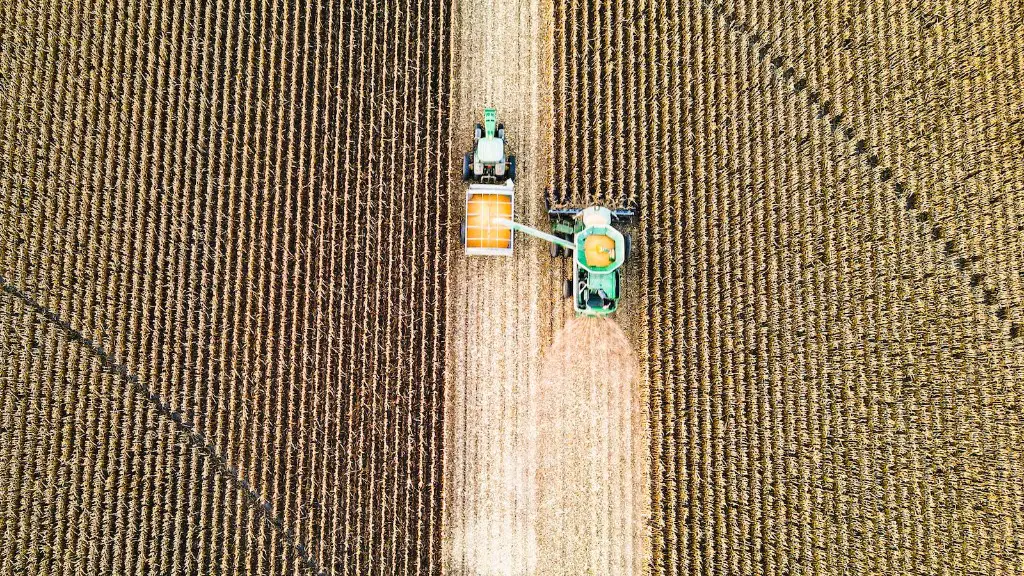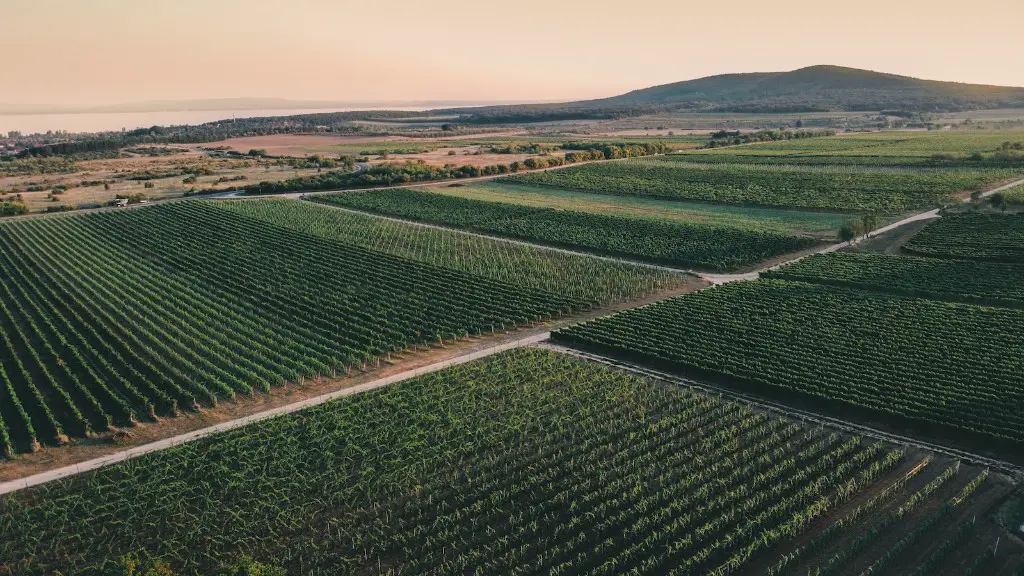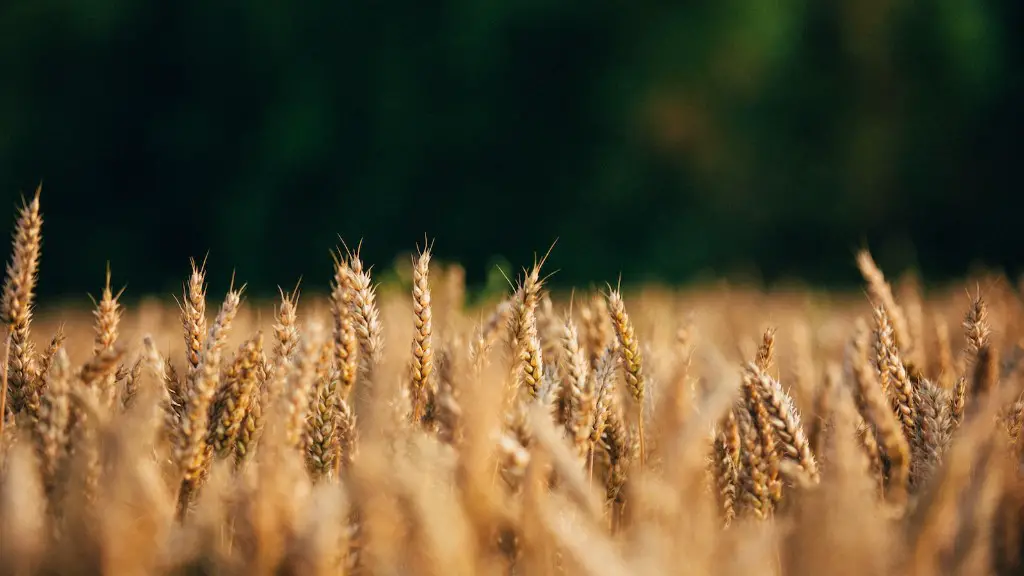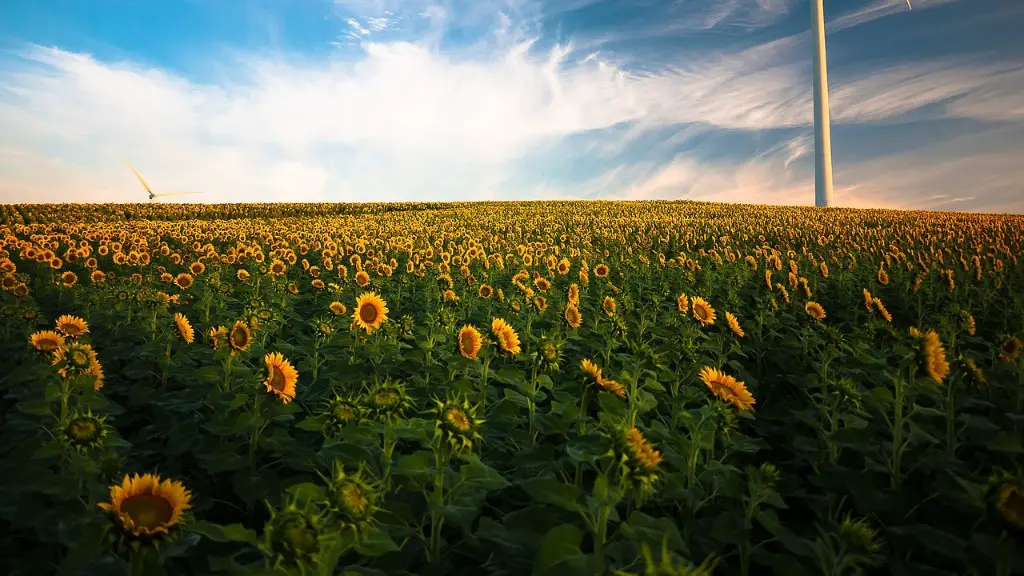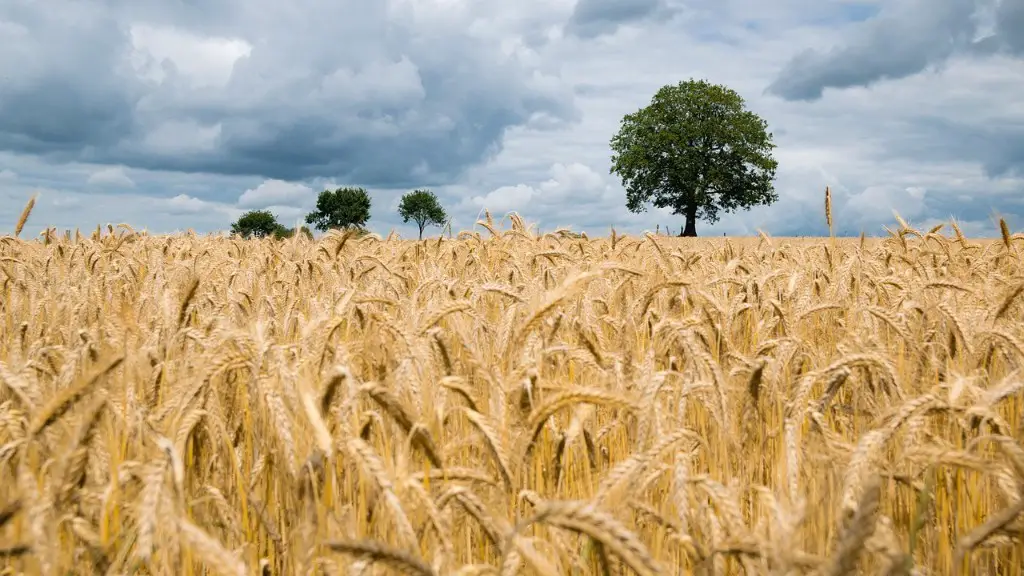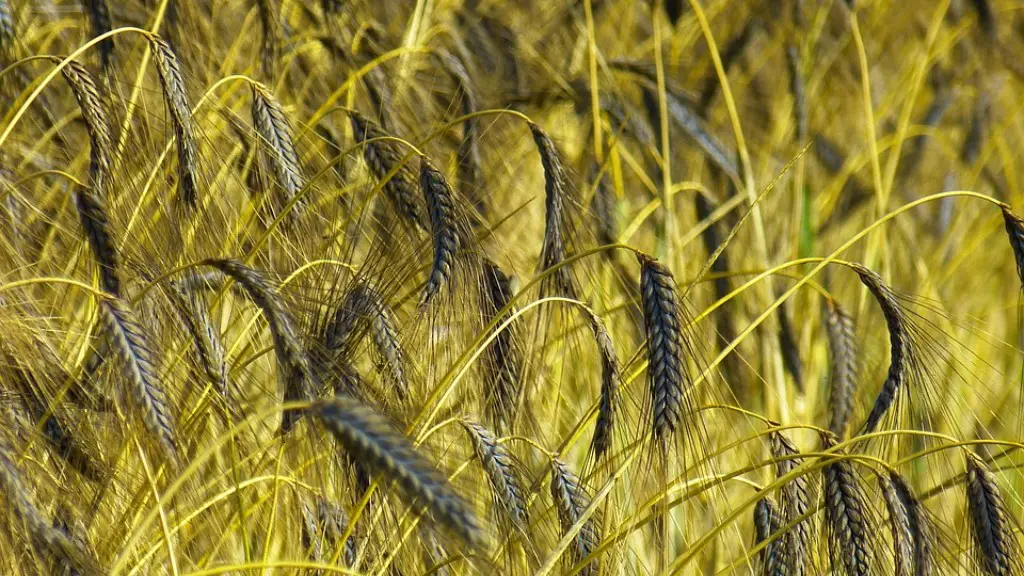Plantation agriculture is the growing of crops on large tracts of land. This type of agriculture is often used in tropical and subtropical regions. Plantations are usually owned by companies or wealthy individuals. Plantation agriculture is useful because it allows for the production of large quantities of crops. This type of agriculture is also labor intensive, which creates jobs for people in the region.
Plantation agriculture, or large-scale commercial farming, is a highly efficient way to produce crops and livestock. Because plantation agriculture relies on industrialized processes and equipment, it can produce large quantities of food at a lower cost than smaller farms. In addition, plantation agriculture can help to preserve natural resources by using land more efficiently.
How is plantation farming beneficial?
Plantation agriculture is a type of source of employment. It generates government income through charges and different duties. It provides foreign trade to the economy. This agriculture increases modern development by arranging unrefined substances, mainly agro-based businesses.
The plantation system has many economies of scale that make it a very efficient way of farming. The sheer level of farming enhances efficiency by permitting greater specialization or division of labour, systematic research, utilization of by-products, access to capital and markets, and mechanization, especially of processing. This results in much higher output per worker and lower unit costs of production.
What is the purpose of plantation
Plantation forests are man-made forests that are grown for commercial purposes, such as timber production. They can provide many of the same benefits as natural forests, including clean water and air, soil erosion control, and carbon sequestration. Additionally, plantation forests can be managed to produce specific products, such as timber, at a high level of quality and efficiency.
Plantations are large farms or estates that specialize in the production of a single crop. The crops that are grown on plantations can vary depending on the location, but typically include crops like cotton, cannabis, coffee, tea, cocoa, sugar cane, opium, sisal, oil seeds, oil palms, fruits, and rubber trees. Plantations are often located in areas where there is a natural comparative advantage for the crop being grown, or where protectionist policies make it more advantageous to grow the crop in that location.
What is the purpose of plantation economy?
A plantation economy is an economy based on agricultural mass production, usually of a few commodity crops, grown on large farms worked by laborers or slaves. The properties are called plantations. Plantation economies rely on the export of cash crops as a source of income.
Plantation economies were common in the American South prior to the Civil War, as the region was largely agricultural and relied heavily on the production of commodity crops such as cotton and tobacco. After the war, many plantation economies were replaced by more diversified economies, as the labor force was no longer composed of slaves and the demand for commodity crops declined.
Trees are extremely important for our environment and well-being. They give off oxygen that we need to breathe and reduce the amount of storm water runoff, which reduces erosion and pollution in our waterways. Many species of wildlife depend on trees for habitat, food, protection, and homes. We humans depend on trees for so many things, including clean air and water, so it’s important that we do our part to protect them.
Why is plantation important to Earth?
Trees play an important role in our lives and the environment. They take in carbon dioxide from the air and release oxygen, which is essential to the sustenance of life. Moreover, they also provide us with wood, food, fuel, paper, which are an important part of our daily lives. Furthermore, they are home to all kinds of animals and birds as well.
Here are 5 reasons why you should consider planting a tree today:
1. More oxygen in our air: Trees produce oxygen as a by-product of photosynthesis, which we humans and other animals need to breathe. By planting more trees, we can help increase the amount of oxygen in the air.
2. More natural carbon sinks and reduced greenhouse gases: Trees act as natural sponges, soaking up carbon dioxide and other greenhouse gases from the atmosphere. This helps to combat climate change and global warming.
3. Natural habitats for endangered animal species: As trees are lost or destroyed, so too are the homes of many animals. By planting trees, we can help create or restore habitats for these animals.
4. Dependable salaries and careers around the world: The forestry and timber industry employs millions of people around the world, providing them with good salaries and careers.
5. Healthier soil and natural humidity control: Trees help to nourish the soil and regulate humidity levels, both of which are important for the health of the environment.
What are the effects of plantation
Large-scale tree plantations can have a negative impact on the environment. They can destroy natural vegetation and cropland, degrade and erode soils, and cause the release of large volumes of greenhouse gases.
There are many reasons to plant a tree in your yard. Here are 10 extremely beneficial reasons:
1. Trees increase property values
2. Trees clean the air
3. Trees slow water runoff
4. Trees prevent soil erosion
5. Trees help buffer noise pollution
6. Trees cool our homes, streets, and cities
7. Trees can save you money on energy costs
8. Trees are beautiful
9. Trees provide shade
10. Trees provide homes for wildlife
How does tree planting benefit the community?
The roots of trees play an important role in preventing erosion and landslide. They absorb and store rainwater, which helps reduce runoff and sediment deposit after storms. In addition, tree roots help recharge ground water supply, prevent transport of chemicals into streams, and prevent flooding.
The roots of trees help keep the soil in place and prevent erosion. This is important because if the topsoil erodes, it can lead to a loss of nutrients and a decrease in the amount of organic matter in the soil. Trees also help regulate the temperature of the soil and help keep it cool in summer and warm in winter. Additionally, trees help improve the quality of the air by absorbing carbon dioxide and other pollutants from the atmosphere.
Does planting trees help climate change
Trees are a vital tool in the fight against climate change, as they have the ability to capture carbon from the atmosphere and store it for generations. Researchers in the United States and Colombia found the biophysical properties of trees can increase the cooling effect of forests by almost 05°C. This is a significant finding, as it shows how forests can be used to combat climate change.
Trees are a wise investment for several reasons. They can lower air-conditioning costs, reduce heating costs, and increase the value of your home.
Air-conditioning costs are lower in a tree-shaded home because the trees provide natural shade. Heating costs are reduced when a home has a windbreak because the trees block the wind. Trees also increase in value from the time they are planted until they mature. Landscaped homes are more valuable than nonlandscaped homes, so planting trees is a smart way to increase the value of your property.
Why are trees important six reasons?
Forests play a vital role in our lives and the life of our planet. They give us clean water to drink, air to breathe, shade and food to humans, animals and plants. They provide habitats for numerous species of fauna and flora, firewood for cooking and heat, and materials for buildings and places of spiritual, cultural and recreational importance. In short, forests are essential for life itself. And yet, they are being destroyed at an alarming rate. According to the World Wildlife Fund, an area of forest the size of Panama is lost every year, and if this trend continues, the world’s forests could be completely gone within 100 years. This is a bleak prospect, not only for the animals and plants that rely on forests for their survival, but for all of us who depend on them for our own. We must do everything we can to protect and preserve our forests, for the sake of our own future and the future of our planet.
(1) Trees are very important for the environment as well as human beings.
(2) Without trees we can not imagine about life on the earth.
(3) It is a wonderful creation of god.
(4) The trees provide us shade and the coolness.
(5) Trees give us fruits, flowers, wood and many other things.
(6) They help in keeping the environment clean and pure.
(7) Trees are home to many birds and animals.
(8) They help in preventing soil erosion and floods.
(9) We should plant more and more trees.
(10) We should protect the existing trees.
What if we planted a trillion trees
This is an amazing initiative that could have a huge impact on climate change. Once these trillion trees are fully grown, they could capture a significant amount of CO2, which would help to offset human emissions. In addition, restoring forests provides many other benefits, such as improving the quality of the air and soil, providing habitat for wildlife, and more. This is a great way to help combat climate change and its effects.
We can help save the Earth from climate change and biodiversity loss by planting a billion trees. When we restore and conserve critical forests, we remove carbon and support biodiversity. A billion is a big number, but we know we can do it together. Help plant trees today!
Conclusion
Plantation agriculture is the large-scale cultivation of crops in a tropical or subtropical country. The crops grown on plantations are typically cash crops, such as coffee, tea, cotton, sugarcane, tobacco, and bananas. Plantation agriculture is a very efficient form of agriculture, and it allows farmers to grow large quantities of crops in a short amount of time.
Plantation agriculture can be useful in many ways. It can provide food, fuel, and other products for people to use. It can also provide employment for people who may otherwise be unemployed. plantation agriculture can have a positive impact on the environment by providing habitats for wildlife and helping to prevent soil erosion.
